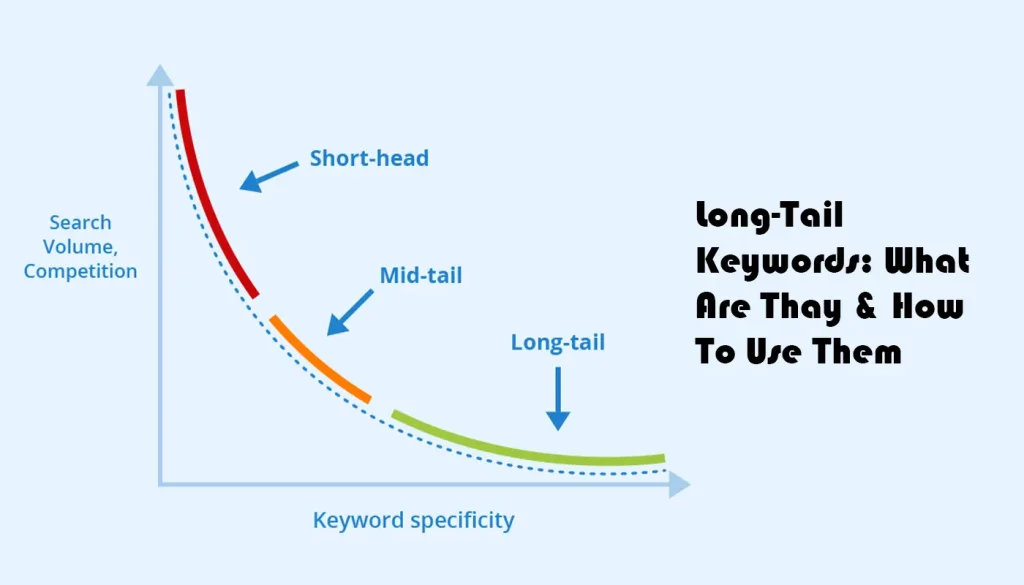In search engine optimization, structured data SEO is critical for gaining an edge. Google’s search algorithms are always getting better. They now use structured data to understand websites better.
This makes websites stand out with attractive, rich snippets. By using structured data wisely, your website can become more visible. This leads to more user trust and a big jump in organic traffic.
Understanding the Impact of Structured Data on SEO
Structured data changes how search engines see websites. It makes information easy to organize, helping notable brands gain digital success.
Why Search Engines Favor Structured Data
Search engines like Google love structured data. It makes web content straightforward for them, helping your site stand out. Websites using structured data see big SEO benefits. They get better classification and context in searches.
From SERPs to Rich Snippets: The Visibility Advantage
Think about finding a search result with star ratings or event dates. Rich snippets from structured data make this happen. Big brands saw up to 82% more click-through rates with it. With few brands using structured data, there’s a big chance for you to improve your search position.
Establishing Trust and Credibility with Users
Structured data builds trust with users. It makes your site more credible by adding verified info. People are likely to click on rich, detailed listings. This leads to loyalty and more conversions. The Food Network saw a 35% increase in visitors after using structured data.
Structured data boosts traffic, clicks, and voice query results. Keep your structured data up-to-date for top-enhanced listings. This will increase your online visibility and user engagement.
Defining Structured Data for SEO
In the digital world, making your content clear to search engines is key. Using structured data formats is crucial. They help communicate directly with search engines.
The Basics: What Constitutes Structured Data?
Structured data means organized information that search engines can easily understand. It organizes, categorizes, and labels content. This makes information easier for search algorithms to digest.
How Structured Data Communicates with Search Engines
Think of structured data as a translator between your site and search engines. It uses special syntax to boost your content’s visibility. This helps present your content better to users.
Various Formats of Structured Data: JSON-LD, Microdata, RDFa
There are three main structured data formats used in SEO:
- JSON-LD: This is a light and easy-to-use format. Google prefers JSON-LD because it easily integrates with HTML. It doesn’t change how your pages look.
- Microdata: This method puts structured data into HTML content. Microdata tags define the parts of a webpage, making it a bit more hands-on.
- RDFa: RDFa lets you add detailed metadata into standard HTML. This gives you a chance to describe your content more accurately.
Using these structured data formats, right can give you an edge in search engine understanding. This leads to better visibility and more user interactions in search results.
Essential Types of Structured Data for Enhancing Content
Exploring content optimization means learning about schema markup and structured data types. These tools can boost your site’s performance in search engine results. For instance, Rotten Tomatoes saw a 25% higher click-through rate with structured data. The Food Network enjoyed a 35% increase in visits.
Rakuten’s AMP pages with structured data had 3.6 times higher interaction rates than standard ones. People also spent 1.5 times more time on these pages. Nestlé’s use of structured data led to an 82% higher click-through rate on their pages, showcasing the power of rich results in catching more eyes in SERPs.
Schema.org has created over 1000 properties and types for structured data. It allows for diverse content optimization, like products showing more images in search results. Despite Google’s changes in 2023, FAQs still help structure content effectively, making each type important for user experience.
- Structured data for articles can bring more relevant visitors.
- Local business schemas enhance visibility in online searches.
- FAQ schemas continue to structure content well, even with Google’s 2023 adjustments.
Though structured data doesn’t directly affect rankings, it makes sites more likely to get rich results. These results often do better than standard ones. Google’s reliance on structured data shows businesses must focus on digital marketing and SEO.
Implementing Schema Markup for SEO Gains
The digital world is becoming more focused on data. This makes Schema Markup a key tool for boosting your SEO. Sites like Rotten Tomatoes saw click-through rates jump by 25% with it. The Food Network’s visits went up by 35%. This shows how well-structured data can boost user engagement and traffic.
When sites like Rakuten used structured data, people stayed 1.5 times longer. They also interacted 3.6 times more on these pages. So, using Schema.org’s methods is beneficial.
The Role of Schema in Defining Website Context
With structured data, websites can talk to search engines better. This makes search results more accurate. Being part of the 797 Schemas lets your results stand out. Nestlé, for example, had an 82% higher click-through rate with Schema Markup.
There are many tools for Schema Markup. They cover categories like Person, Organization, and local business. This helps fill out the Knowledge Graph more fully. It also follows Google’s E-A-T guidelines.
How to Implement Schema Markup on Your Site
Schema.org has many types of structured data to clarify your content’s context. Starting with Google’s 12 recommended Schemas is brilliant for newbies. Including schemas like FAQPage or Recipe can lift your content. This makes you stand out in a world with millions of daily searches.
Using the Person Schema helps show connections between entities. It also builds a strong content database.
Tools for Schema Markup Creation and Validation
The right tools make creating and checking your site’s structured data easier. Google’s Structured Data Markup Helper makes the process simple. For checking, Google’s Rich Results Test helps ensure your markup is correct. This allows you to fix any problems right away.
The nine important Schemas, from Article to VideoObject, show the power of structured data. They help you reach your audience better.
Being great at SEO now means more than just keywords and links. It’s about how well you use Structured Data with Schema Markup. Following Schema.org and using the tools can make your brand as successful as others. This can improve how people interact with your site and your overall site stats.
Structured Data for SEO: Best Practices for Implementation
Using structured data best practices boosts how search engines see your site. It also improves how visible you are to future visitors. Look at Rotten Tomatoes, which had a 25% higher click-through rate with structured data.
The Food Network saw a 35% increase in visits after using structured data on 80% of their pages. These examples show how structured data can help your technical SEO strategy.
JSON-LD is the go-to format for pros, including Google. It’s easy to add to your site without changing its look. It can be used in both the head and body of your webpage.
Following Google’s advice to use JSON-LD formatting can help your click-through rates jump by up to 30%. This is because of Schema.org’s comprehensive vocabulary standards.
But, just adding structured data isn’t enough. You need to do it right. Make sure your data matches what’s on your webpage. Tools like the Rich Results Test can help you check your structured data. This ensures it works well in Google Search. If your data is off or misleading, you could face penalties. So, being accurate and truthful is key.
- Google recommends JSON-LD for easy indexing and display in search results.
- Make sure your structured data accurately reflects your page content.
- Use the Rich Results Test to check your structured data’s effectiveness.
- Structured data helps snag spots in knowledge panels and Featured Snippets, even though it doesn’t directly boost search rankings.
Structured data also plays a big role in mobile experiences. AMP pages with structured data get special spots in Google’s search results. This includes appearing in Top Stories and News Carousels. In today’s mobile-first world, this is key to keeping users engaged. Rakuten found that users stay 1.5 times longer on pages with structured data.
Your use of structured data and technical SEO does more than make you appear in searches; it makes you stand out. By following best practices, you can shape the journey from SERPs to your site. This journey is critical as 75% of users don’t pass the first page. Nestlé and Rakuten’s case studies show a big boost in how users interact and stick around because of structured data.
The secret to using structured data well is being strategic and accurate in your approach. Stick to the rules from Google, Bing, and Yahoo. You’ll likely see your content in various SERP features if you do. This doesn’t just get more clicks; it also encourages user engagement.
Maximizing User Experience with Structured Data
In the world of search engine optimization, user experience is crucial. Using structured data correctly is at the heart of this. This approach isn’t just about being seen. It’s about creating a smooth path for visitors, from search results to landing on your site.
Rich Snippets and User Engagement
Rich snippets boost engagement in a big way. They give a peek of what’s on your site directly in search results. This includes ratings, photos, and key facts. Presenting this information upfront informs and draws users in. It boosts the chances of them engaging with your content.
Structured Data: Beyond the Click-Through Rates
However, the value of structured data doesn’t stop at the first click. It promises to always deliver precise, helpful info that meets what users are looking for. This builds trust and brings people back. By linking users to the content they want, structured data helps achieve business goals and user satisfaction.
Ensuring Consistency Across Web and Mobile Platforms
Content needs to move as your audience does. That’s why structured data and mobile SEO are vital. They guarantee your content adapts smoothly across devices. Pairing structured data with AMP (Accelerated Mobile Pages) speeds up your site. This makes sure your site displays evenly on all devices. Efficient, relevant, and fast-structured data with AMP covers all these must-haves for mobile users.
How Structured Data Affects Search Rankings and Traffic
Structured data is key in SEO, but it’s not a direct ranking factor. It helps search engines understand your web content better. This understanding leads to better visibility in specific searches. As a result, your site’s search engine ranking and traffic can increase.
Surprisingly, 50% of brands don’t use structured data yet. Those who do see amazing results. A financial client saw 400% more traffic from rich search results. The Answer Center got 160% more impressions and 150% more clicks. The magazine’s numbers also shot up, with 41% more impressions and 28% more clicks. These numbers show how powerful structured data can boost organic search interactions.
So, why are many brands slow to adopt structured data? They face obstacles such as insufficient resources, lack of coding skills, CMS issues, unrecognized benefits, and slow uptake of digital trends.
For online stores, structured data means quicker content indexing, better click rates, more conversions, and a shot at featured snippets. Since about 75% of users don’t go past page one of search results, appearing it is crucial. Structured data, with rich snippets and appealing listings, can significantly increase click rates and improve your search ranking.
Structured data also affects key ranking factors indirectly, like click-through rates and how long visitors stay on your site. Displaying important info upfront encourages visitors to explore more. This can improve user behaviour metrics, positively affecting your search rankings. Using different schema types, like FAQ or product, gets you rich snippets that attract more potential customers.
Various structured data types make your online presence more robust, enhancing how users find you on search engines. In conclusion, investing in structured data smartly boosts your search visibility and organic traffic, securing your position in search rankings.
Optimizing Local SEO through Structured Data
Local SEO optimization is crucial for all businesses in today’s online world. Companies can improve their local search ranking by using structured data, like Local Business Schema. This, in turn, makes it easier for potential customers to find and engage with them online.
Local Business Schema and Visibility in Local Search
Adding Local Business Schema changes how search engines see your business. Studies show that schema companies see more returning customers and increased foot traffic. This is because structured data clearly shows your business’s key details, such as location and hours. All this info is organized with Local Business Schema to improve your local SEO optimization.
Leveraging Structured Data for Local Events and Offers
Structured data is also great for boosting local events and offers. Event Schema Markup can make your events appear right in the search results. This puts your events where your local audience can easily find them. Schematic markup can even let people book or order directly from the search results.
The Interplay Between Reviews, Ratings, and Local SEO
Customer reviews play a big role in building trust and a good reputation. That’s where Review Schema comes into play. Review Schema brings your business’s reviews into the spotlight on search engine results pages (SERPs). Studies show that this can increase click-through rates by up to 30%. This highlights the power of reviews in influencing customer choices.
If you run any business, like a boutique hotel or restaurant, using structured data is smart. Things like Local Business Schema, Review Schema, and Event Schema Markup can boost your online presence. They help with visibility and engagement, strengthening your bottom line.
Even though Schema Markup doesn’t directly affect your ranking, it helps search engines understand your content better. This is key for a successful local SEO strategy.
The Interconnected World of Social Media and Structured Data
Using structured data through the Open Graph Protocol is key in social media marketing today. Almost half of Bing’s top search results use HTML5 tags. This shows Bing likes structured data, like JSON-LD or Microdata, to make content more visible.
Bing prefers websites with Schema.org markup in JSON-LD format. This helps sites appear in Bing’s rich snippets and get more clicks. Since Google supports many schema types, using them can boost your social search strategies.
Adopting structured data is vital for your brand online:
- Better Engagement: Properly tagged content grabs attention on social media, increasing engagement.
- Brand Trust: Snippets and search results that stand out can make your brand seem more trustworthy.
- Future-Proofing: Using structured data now prepares you for future SEO trends.
- In-depth Insights: The data from social search can inform your content and market strategies.
Are you keeping up with social media trends? Technologies like visual search, AI, AR, and social shopping are reshaping online interactions. Tools like structured data and the Open Graph Protocol can boost your reach and engagement.
Brands can build a strong, unified online presence through strategic social media marketing and structured data use. This approach helps attract and convert an audience, offering valuable insights in a competitive digital market.
Conclusion
In digital marketing, your SEO won’t be complete without using structured data on your site. This tool goes beyond basic SEO to boost your site’s visibility. It greatly affects your click-through rate (CTR) and organic revenue.
With Google focusing on rich snippets and top positions, using structured data is key to standing out. Also, structured data is essential as SEO expands to include voice search. It helps you stay ahead by matching with new search trends and AI.
Webmasters need to know the role of structured data today. It can improve your site’s search position and presence in “People Also Ask” boxes. Plus, it gets a thumbs up from Google’s Rich Results Test. Adding structured data to your site is vital in today’s tough market. It’s more than advice; it’s a critical step for digital success.
FAQ
Q: How do I effectively implement structured data on my website?
To implement structured data, identify the relevant schema markup using tools like Google’s Structured Data Markup Helper. Test your implementation with Google’s Structured Data Testing Tool to check for errors and ensure search engines can understand the markup. Keep structured data up-to-date and accurately reflecting each page’s main content.
Q: What type of schema markup should I use for my content?
The type of schema markup you should use depends on your website’s content. For product pages, use product schema markup. For blog posts, use article schema. There are various types of schema markup for different content, such as events, recipes, and reviews. Choose the one that best describes your content to improve your website’s SEO.
Q: How does structured data impact your SEO performance?
A: Structured data impacts your SEO performance by making it easier for search engines to understand the content and context of your pages. Incorporating structured data helps search engines display rich snippets, enhancing visibility in search results and potentially increasing click-through rates. Though not a direct ranking factor, structured data can improve overall SEO by helping search engines index your content more effectively and accurately.
Q: Can mastering SEO include mastering structured data implementation?
A: Yes, mastering SEO includes mastering structured data implementation. Understanding how to implement structured data on your website properly is crucial for a comprehensive SEO strategy. It requires technical SEO knowledge and the ability to anticipate how structured data presents your content within search results. Mastering structured data implementation is integral to maximizing the SEO performance of your website.
Q: How can I use schema markup to enhance the relationship between SEO and structured data?
A: Using schema markup enhances the SEO and structured data relationship by providing search engines with explicit information about the context of your content, allowing for more accurate indexing and a better understanding of its relevance to specific search queries. To maximize this relationship, ensure your schema markup accurately represents your content and uses the most relevant types within the schema.org vocabulary. Regularly updating and testing your structured data with tools like Google’s structured data testing tool also helps maintain this beneficial relationship.
Q: What are the most common structured data errors, and how can they be resolved?
A: The most common structured data errors include missing required fields, incorrect or invalid values, and syntax errors in the markup. To resolve these errors, utilize tools like Google’s Structured Data Testing Tool to identify the specific issues. Review the detailed messages provided by the tool and make the necessary corrections to your markup. Regularly checking and updating your structured data can help prevent these errors and maintain its effectiveness.
Q: Is it essential to master technical SEO to implement structured data efficiently?
A: While mastering every aspect of technical SEO may not be necessary to implement structured data, a basic understanding of technical SEO principles can significantly help. Knowing how search engines crawl and index web content will allow you to implement structured data more efficiently and effectively. Structured data is a part of technical SEO, and understanding the broader context can improve the accuracy and effectiveness of your implementation.
Q: How often should I update the structured data on my website?
A: The frequency of updates for structured data on your website should correspond with changes in your content. If your website content changes regularly, it’s essential to update your structured data accordingly to ensure it remains accurate and relevant. Even if your content does not change frequently, conducting periodic reviews of your structured data to adhere to best practices and schema updates is beneficial for maintaining its effectiveness in improving your SEO.





